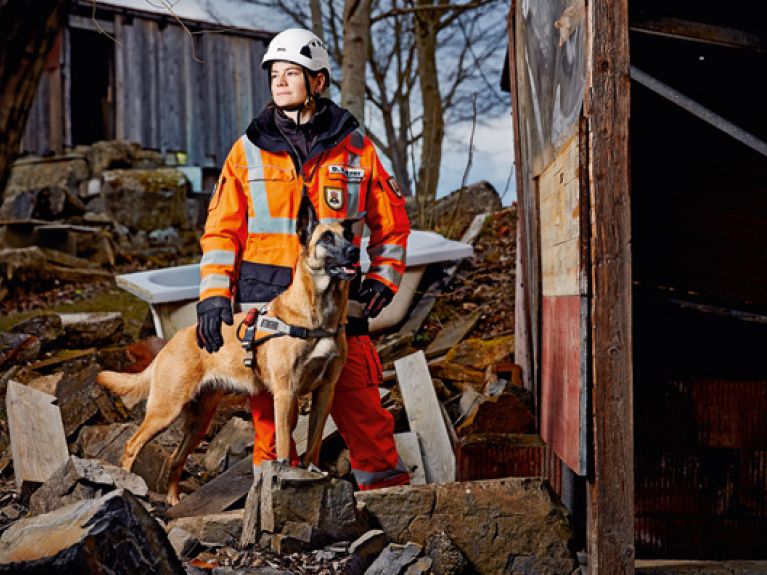“Cultural differences move into the background”
They are always ready for their next assignment: Daniela Fetzer and her rescue dog Onja look for survivors after earthquakes and other disasters.

The bag I use for international missions is always packed. When I receive a call, I still have a few hours’ time. First of all, I phone my employer and ask him to give me time off. As far back as I can remember I have done voluntary work for the German Association of Rescue Dogs (BRH). The association has 81 teams all over Germany, each with roughly ten certified rescue dogs. I’m an agricultural engineer and glad that my employer supports me in my voluntary work. Fortunately, I am never alone during assignments. My dog Onja is always with me. She’s a great support; we’re a perfect team. She looks for survivors after earthquakes and other disasters. When she barks, I breathe a sigh of relief, because it means she has found someone. I trained her as a rescue dog myself. Our first mission together outside Germany was in Nepal in 2015. We landed in Kathmandu just over 24 hours after the earthquake. The situation was horrific. Many of the places where people had been buried were inaccessible. As a result, there wasn’t much for Onja and the other nine dogs in the German rescue team to do. We flew to the Gorkha district and helped out in hospitals. It was good that Onja was there. She made lots of children laugh. In Nepal I noticed that cultural differences move completely into the background during disasters. In that situation, victims and helpers both concentrate on what really counts: survival.” ▪